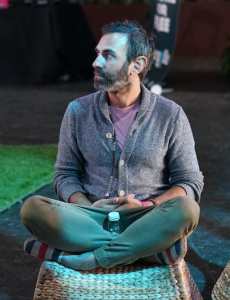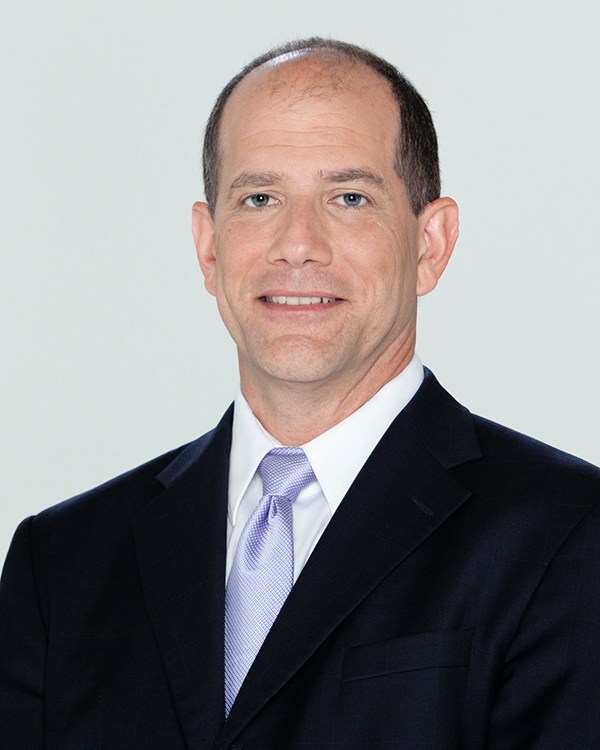What is Mindfulness?
Mindfulness is a broad term that generally refers to a cultivated awareness.
Mindfulness begins with being aware of where you are, what’s going on around you, and what’s going on inside you. You increasingly become aware of where your thoughts are, how you are feeling, how your feelings affect your thinking, and of the quality of your presence in whatever circumstance you find yourself.
Through mindfulness, you become aware that you can control where you place your attention, how you relate to your thoughts, and that you can be so much more authentic and effective when you control your thinking, rather than letting your thinking control you.
You may have heard the saying that the ego is a wonderful servant but a terrible master. With mindfulness, you learn to put your ego aside, so you can appreciate and evaluate circumstances, both external and internal, without judgments and preconceptions, with an open mind and heart, and with no attachments to ideas of how things should be or should go. Mindfulness is a path to recognizing the world as it is.
Why should mediators practice mindfulness?
Mindfulness is widely recognized in most professions to be beneficial for stress management, clarity, increased job satisfaction, and self-awareness. Mindfulness helps professionals to avoid mistakes, to step back from non-productive interactions to gather their thoughts, and to respect their own feelings when they need to take a break.
Mediators can benefit greatly from mindfulness by becoming more present, patient, open and broad-minded, and less judgmental with clients, which also benefits their clients.
Mindfulness can help mediators to avoid potential ethical pitfalls by being more conscious of their duties and of their “gut feelings,” so that they won’t short-cut anything for the sake of expediency.
Oftentimes, mediators make mistakes when they are not fully present, in a hurry to settle issues or close a mediation, or when their minds are elsewhere. When we are not fully present, we are also more likely to exercise poor judgment.
Mindful listeners will be conscious of being distracted and will recall their attention to be present and focus on the people there for their help. Mindfulness can help to ground and anchor mediators so that our clients’ emotions and confusion won’t hijack and cloud our attention.
Listening mindfully helps one to recognize common themes, underlying and unspoken concerns, and to find common ground that people in conflict may overlook. It also helps in building trust with mediation clients, and to put them at ease.
In the long run, mindfulness practices, like meditation, help us to be detached from our thoughts, so we can view them critically and not accept everything we think to be true. This helps people to find themselves and forgive themselves. Sometimes, our attitudes and thoughts are just repetitions of what we’ve heard from parents, friends, teachers, media, advertisers and such. When we step back and realize that we are the awareness that hears our thoughts, and are not the thoughts themselves, we can look at our thoughts critically and decide what suits us or not. In this way, by being mindful of our thoughts and becoming detached from them, we can shed prejudices, fears, limiting beliefs, and other habitual thinking that may be holding us back, or keeping us down.
How can mediators become more mindful?
 As someone who teaches yoga and meditation, my advice is to heed your mother’s advice and “take a breath.” Whenever we are anxious, hurried, distracted, uncomfortable, or out of the moment in any way, the path back to the present moment starts with mindful, slower and fuller breaths. To be more present and aware, continue taking more conscious breaths.
As someone who teaches yoga and meditation, my advice is to heed your mother’s advice and “take a breath.” Whenever we are anxious, hurried, distracted, uncomfortable, or out of the moment in any way, the path back to the present moment starts with mindful, slower and fuller breaths. To be more present and aware, continue taking more conscious breaths.
When mediation parties are heated, melodramatic, obstructive, or being counter-productive, it can help for the mediator to say, “Why don’t we all take a breath and pause for a moment?” to invite everyone to step into a quieter moment for reflection, to turn down the heat, and to invite respectful cooperation.
Mindfulness can help mediators be present with their feelings and to respect their values and ethical obligations in all circumstances. In Yoga, we teach students to “scan their bodies” for tension, and, once found, try to release it. Many people carry tension in their bodies, by furrowing their brows, clenching their jaws, hunching their necks, and holding their breath. A person can release tension simply by finding the location in the body where the stress is held and then to consciously let go of that tension and relax.
In conflicts, people have fears, hurt feelings, preconceptions, misconceptions, and they often feel overwhelmed. Mindful mediators will not let chatter in their heads, or their personal prejudices, close their ears, their minds, or their hearts. Mindful mediators are skillful listeners. They quiet their thoughts to be present with the people they are serving. This, in and of itself, has tremendous value, because mediation participants often feel unheard and misunderstood, and they are more likely to feel acknowledged when working with a mindful mediator.
Being present, authentic, patient, and committed to integrity are aims of mindfulness, and these same qualities can help mediators avoid ethical pitfalls and better serve mediation participants. Mediators, therefore, should be urged to develop their mindfulness skills, through live classes, videos or books, and to regularly practice these skills to cultivate a more mindful awareness.
~~~~~~~~~~~~~~~~~~~~~~~~~~~~~~~~
Stuart Reed is an attorney and mediator in South Florida. He is also a yoga instructor who offers a “Yoga and Mindfulness for Lawyers” course approved for Continuing Legal Education credits to members of the Florida Bar, and he recently lectured about the benefits of mindfulness in collaborative family law practices in an Advanced Interdisciplinary Collaborative Training program at Nova Southeastern University. More information about his background and his law and mediation practice is available at his website, www.LawAndMediationLLC.com.

